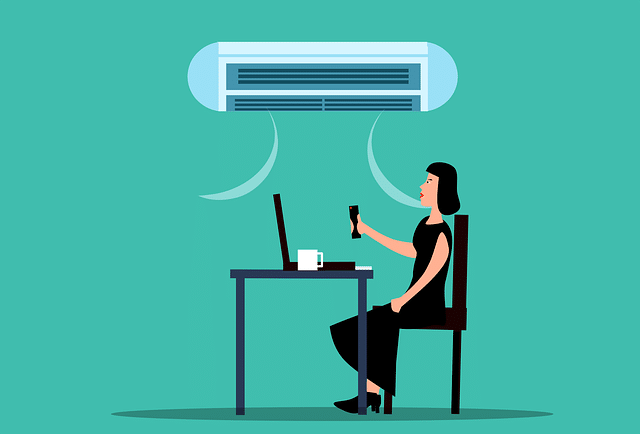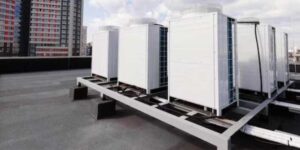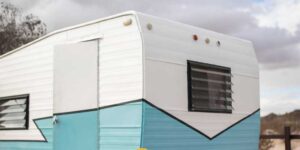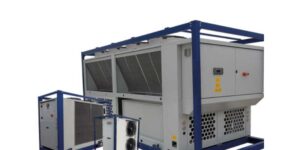Considering the operating conditions in which your process Louisville chiller rentals will be used and the process for which it will be used will assist 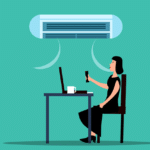 you in determining the features that are most important to have on your system.
you in determining the features that are most important to have on your system.
When it comes to critical process cooling applications, when purchasing industrial process chillers, the checklist provided below should be used as a guide. Here are the questions that you may ask from your Louisville chiller rentals.
When Selecting a Louisville Chiller Rentals
1. Will the condenser be cooled by air or water, and which one will it be?
- If it’s air, where is the chiller going to be located? Is it preferable to be indoors or outdoors?
- Factors to consider are the serviceability of the space, the ceiling heights, any obstructions, the walls, the highest and lowest ambient air temperatures, and the general location of the room.
- If you don’t use water as a cooling fluid, what kind do you use instead?
- What are the highest and lowest temperatures reached by the condenser coolant?
- Will your water-cooled condenser have a flow rate of approximately 3 gallons per minute per tonne when it is operating?
- If so, will you need to filter this coolant before it gets to your chiller’s condensing unit?
- Water-regulating valves in the condenser cooling-fluid circuit must be properly installed and maintained to maintain proper system head pressure.
 2. The Louisville Chiller Rentals will be packaged or split, depending on your preference.
2. The Louisville Chiller Rentals will be packaged or split, depending on your preference.
- When installing a packaged unit, will the Louisville chiller rentals or remote condenser (when installing a split system) be located inside or outside?
- Take into consideration where the chiller or condenser will be installed.
3. Exactly how precise will you require your temperature control to be?
- A two-loop process chiller may be required to maintain a specific temperature in an onboard or separate tank when precise temperature control is required.
4. Do you have any voltages available for the new Louisville Chiller Rentals that I could borrow?
- What electrical work is required to power the new chiller, depending on the voltage you select?
- Which voltage would be more efficient during operation if they were relative inefficiency?
 5. What kind of fluid are you planning on cooling?
5. What kind of fluid are you planning on cooling?
- Will the water have to be filtered before it can be put into the chiller? Is the fluid corrosive, or does it contain chemicals that could cause damage to the wetted components of the vehicle?
- What effect will your operating temperatures have on liquid viscosity, and how will they affect it? You need to know in advance.
6. What temperatures should be expected at the Louisville Chiller Rentals inlet and outlet?
- An additional buffer tank or other safety measures may be required to protect the compressor if the pressure becomes too high.
- Alternatively, if the high temperatures returning to the chiller are only temporary during startup and then drop within the safe operating range, additional precautions may not be required.
7. Will you be required to add freeze protection to the coolant in the future?
- If that’s the case, what kind of equipment would you require?
- What do you think you’ll need in terms of coolant?
- Which level of freeze protection is considered to be the bare minimum?
8. What coldest leaving fluid temperature can the Louisville Chiller Rentals achieve during operation?
- To calculate the suction temperature, subtract approximately 10°F from the coldest leaving fluid temperature.
- How cold is the coldest ambient temperature that the chiller/condenser can withstand during the winter months?
- Choose the colder of these two values — either the suction temperature or the coldest ambient temperature — and freeze protect at a temperature about 10 degrees Fahrenheit below that figure to prevent ice formation.
9. How quickly do you anticipate your process to progress?
- Will a standard evaporator be able to handle the flow rate that you need it to bear?
- Is it going to be able to handle the viscosity of your fluid at the temperature it will be operating at?
- Will the internal tank, piping, and other components handle the anticipated flow rate and maintain their integrity?
- Whether or not the chiller will require the use of a system pump has yet to be determined.
10. Will you be utilizing the municipal water chiller system?
- Is your process flow going to be continuous, or will it be intermittent?
- Do you already have a process pump operating in your circuitry?
- What are your process’s flow and pressure requirements if this is not the case?
Address
7200 Distribution Dr, Louisville, KY 40258Phone: (502) 384-8500 Email: ACS.receptionist@AllianceComfortSys.com
Opening Hours
| Monday | 9:00 a.m. – 5:00 p.m. |
| Tuesday | 9:00 a.m. – 5:00 p.m. |
| Wednesday | 9:00 a.m. – 5:00 p.m. |
| Thursday | 9:00 a.m. – 5:00 p.m. |
| Friday | 9:00 a.m. – 5:00 p.m. |
| Saturday | Closed |
| Sunday | Closed |

